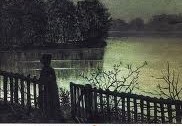James Jacob Thomson and the Ottoman Connection
I’m off to Turkey tomorrow for a long-awaited vacation. Yes, I realize that no sane person heads to that part of the world in July, but as it’s already 35oC with the humidex in Ontario, it’s really just a lateral move at this point. Glancing through my travel book this morning, I remembered that one of…












